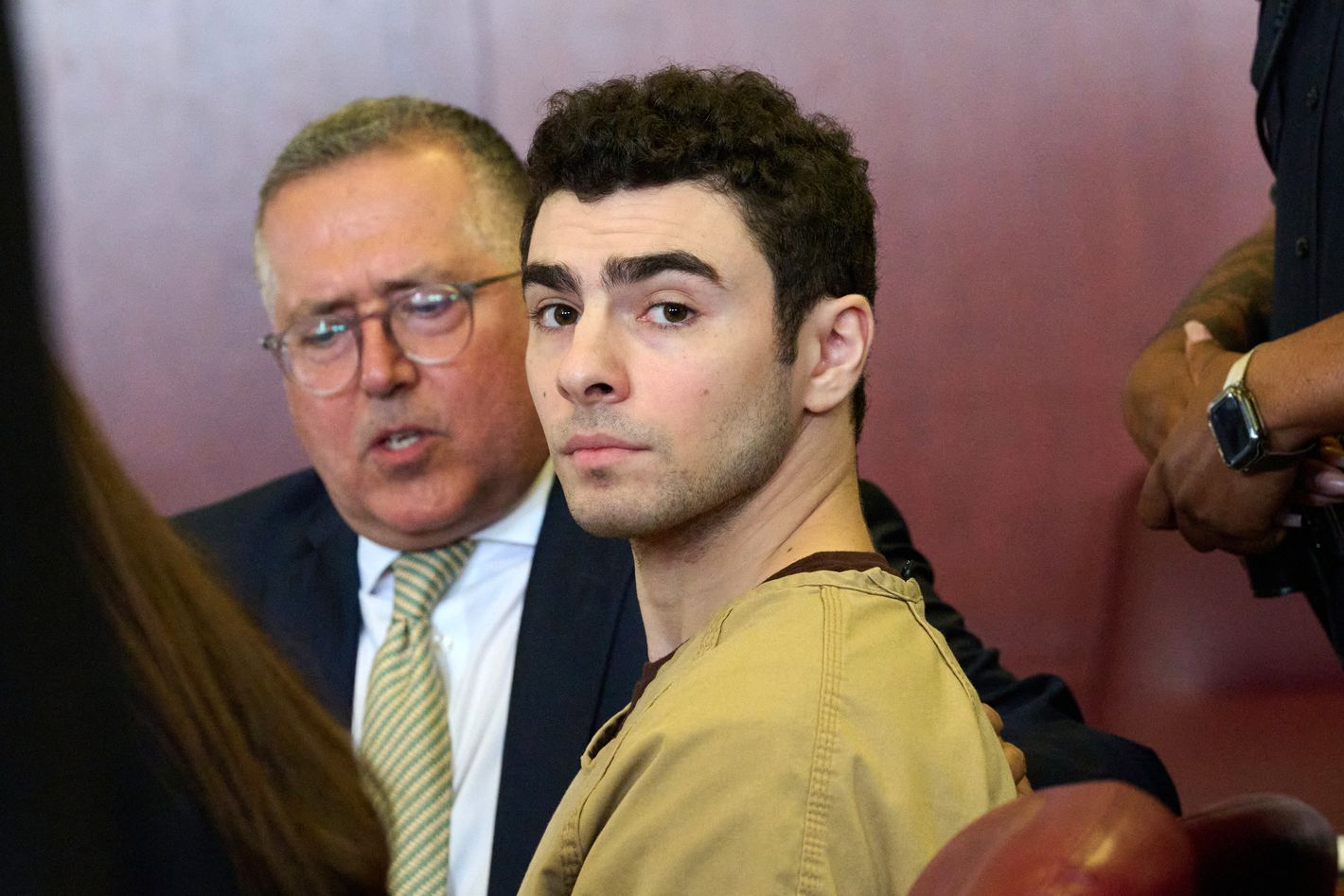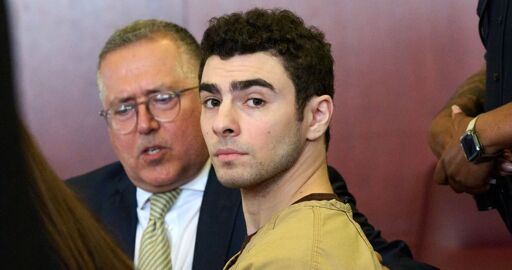 Photo: Curtis Means/Getty Images
Photo: Curtis Means/Getty Images
The ideology of Brian Thompson’s murderer was a topic of intense speculation even before a suspect was named. After the UnitedHealthcare executive was shot in midtown Manhattan last year in December, law-enforcement officials said they’d found a message at the scene of the crime: shell casings inscribed with the words deny, defend, and depose, a twist on the phrase often used to describe health insurers’ delaying payment to customers, denying claims, and defending their own actions. When Luigi Mangione was arrested days later, prosecutors on both the state and federal level jockeyed to charge him, and the Manhattan district attorney’s office zeroed in on Mangione’s politics. The office hit him with 11 counts including two counts of murder as an act of terrorism, arguing that because he had published critiques of the health-insurance industry online (and, it said, even written about it in a journal it had found in his backpack), his alleged murder of Thompson should be interpreted as an attempt to intimidate the government or civilians into changing that system.
On Tuesday, a New York State judge handed Mangione’s defense team a victory and dismissed the terrorism charges. As the defendant sat in a Manhattan courtroom, ankles chained together and wrists handcuffed to a thick leather belt that circled his waist, Judge Gregory Carro said there was simply not enough evidence to justify that framing of Mangione’s alleged crime. In Carro’s decision, he writes that murdering someone plus stating a desire for change is not tantamount to terrorism. Instead, he sides with the defense, writing that prosecutors seem “to conflate an ideological belief with the intent to intimidate or coerce a civilian population.”
“The People place great emphasis on one snatched phrase (‘revolutionary anarchism’) in defendant’s writings,” Carro writes in his decision, referring to a term prosecutors say they found in Mangione’s journal. “Not only does this stretch the import of a two-word phrase beyond what it can carry, but it ignores other, more explicit excerpts from defendant’s writings in which he states that his goal is to spread a ‘message’ and ‘win public support’ about ‘everything wrong with our health system.’”
Mangione could still get life in prison from New York for second-degree murder, even without terrorism. He also faces eight separate weapons charges in the state.
The New York case is one of three trials Mangione faces, none of which have begun. He also faces five counts in Pennsylvania, where he was arrested, including for illegal gun possession. His federal case, though, has attracted the most attention: Prosecutors are pursuing capital punishment. Trump is eager to continue the historic spree of executions that he forced through in 2020, and Mangione’s was the first capital case that Attorney General Pam Bondi announced when the president took office again this year. Mangione’s defense team is still attempting to get more information about prosecutors’ justification for why their client should face the death penalty, and his next appearance in federal court is scheduled for December 5. (Bondi has since sought the death penalty against 18 more people, although judges have blocked some of her attempts.)
Early on Tuesday morning before proceedings began, a line of at least 50 members of the public stretched down the pavement, hoping to enter the courtroom. The first person in line told a reporter that she had flown to New York from Paris in order to attend the hearing, then hired a professional line-sitter to hold her spot starting on Sunday evening — more than 36 hours in advance. A Mangione supporter named Mason Alexander said he’d taken a Greyhound bus down from Massachusetts the day before with no place to stay or any other plans but to attend the hearing; when he got to the courthouse around 10 p.m. on Monday night, he estimated there were already more than 25 people camping outside. In the end, only about two dozen members of the public were allowed to enter. The woman who came from Paris made it in; Alexander did not.
Before the hearing began, Karen Friedman Agnifilo, Mangione’s lead defense lawyer, paced around the front of the room in a dark suit, quietly conferring with her team or swaying back and forth, bouncing lightly on her loafers as she gazed into the middle distance, in tense, composed ready position. When the court passed down the judge’s decision, Friedman Agnifilo and the other defense lawyers read through it quickly, then came together in a scrum, with slight smiles breaking their composure. Once Mangione was brought in, shuffling in his shackles past his few lucky supporters seated in the back two rows of the room — they leaned forward and gripped the seats in front of them as he passed — he bent his head over to read the decision in his lap, appearing to hold the papers with hands still cuffed.
The defense was not entirely satisfied. Mangione’s own health issues, including his debilitating back pain, have been widely discussed and often proposed as motivation for his presumed ideological turn against the health-insurance industry. Two months ago, his legal team filed a motion claiming that prosecutors had illegally subpoenaed Mangione’s former insurer, Aetna, and that Aetna violated privacy laws by sharing Mangione’s medical history with the DA. When Friedman Agnifilo brought this up in court, Carro said that prosecutors would not be allowed to use any information they got from that subpoena but declined to sanction them. The defense had also tried to claim that the concurrent federal and state trials violated the Constitution’s prohibition on double jeopardy — no dice from Carro — and argued that the federal trial needed to go first because Mangione faces the death penalty. Carro waved that off too: Although an official trial date has yet to be announced, hearings for the New York case will begin on December 1.
As the proceedings ended and we all filed out of the courthouse, protesters milled around on the sidewalk across the street waving “Free Luigi” placards and doing interviews. A truck cruised by covered in huge, pro-Mangione ads. I found Alexander again, who’d already heard about the dropped terrorism charges despite not being allowed inside. “I wasn’t even expecting that to happen,” he said, looking excited. “So that’s a win for today.” Back home in Springfield, Alexander didn’t know many people who were following the case as closely he was. Even if he had to get back on the Greyhound and go home in a few hours, it was worth coming to New York just to stand outside the courthouse — to meet others who cared about the same issues that he did. “Health care shouldn’t be a business. People need to realize that this isn’t a thing in the rest of the world,” he said. “This is a uniquely American thing, and it’s cruel, and it’s not normal.”
From Intelligencer - Daily News, Politics, Business, and Tech via this RSS feed

